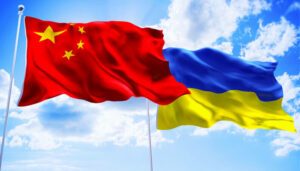
The State Tax Service of Ukraine (STS) warns of probable restrictions in work from December 31, 2025 to January 2, 2026 due to routine and technical works. According to information in its Telegram channel, the works are related to the end of the budget year 2025 and the beginning of the budget year 2026.
“During this period there may be restrictions in the work of electronic services of the State Tax Service. December 31, 2025 – the last operational day of 2025 for the reception and processing of tax invoices and calculations of the adjustment to tax invoices to the Unified register of tax invoices, which will continue until 3 pm,” – explained STS.
At the same time, January 2, 2026 is defined as the first operational day of 2026 to accept for processing of tax invoices and adjustment calculations, information and communication systems of STS will work in normal mode.
The results of processing electronic documents, except for tax invoices and adjustment calculations, which will be received from 15:00 on December 31, 2025 to 15:00 on January 2, 2026, will be sent after the completion of routine and technical work.
Also in the STS emphasized that the fiscal server of the supervisory authority works in normal mode with possible restrictions at night.

The Ukrainian Red Cross (URC) has set up heating centers in settlements in the Kyiv region.
“After another massive Russian attack on Kyiv and the Kyiv region, many people were left without electricity, water, and heat. In order to support the population in the absence of basic utilities, the Ukrainian Red Cross has set up heating points in settlements in the Kyiv region,” the UKR reported on Facebook on Sunday.
Two mobile heating points, set up by volunteers from the rapid response team of the National Committee of the Ukrainian Red Cross Society, operated in Brovary and Zazimye for two days. During this time, more than 100 people sought help. Here, they could warm up, drink hot beverages, charge their mobile phones, and rest.
In Vyshgorod, two heating points set up by the Kyiv Regional Rapid Response Team of the Ukrainian Red Cross have been operating for the second day in a row, providing all the necessary assistance to local residents.

The bilateral meeting between US President Donald Trump and Ukrainian President Volodymyr Zelensky will begin on Sunday, December 28, at the Palm Beach resort at 10 p.m. Kyiv time.
According to the schedule published on the website of the American parliamentary publication Roll Call, the meeting is scheduled for 3:00 p.m. local time.
It will take place in Palm Beach, near Trump’s private residence Mar-a-Lago, where Trump arrived for the weekend.

Ukraine has joined the group of countries with the highest level of maturity of digital public administration according to the updated GovTech Maturity Index 2025 (GTMI) of the World Bank, according to the published report of the organization.
According to the report, GTMI 2025 covers 197 economies and divides them into four groups according to the level of GovTech development: A – Extensive, B – Significant, C – Medium and D – Low.
Ukraine is assigned to Group A, which includes 80 states demonstrating the most advanced solutions in the sphere of digital public services, basic information systems, open data and digital interaction with citizens.
The document notes that over the period from 2022 to 2025, the share of Group A countries has increased and the gap between leaders and outsiders of digital transformation of the public sector has widened. Europe and Central Asia as a whole remains one of the most mature regions in terms of GovTech.
Earlier, the researchers pointed out that Ukraine has significantly improved its performance in recent years and moved from Group B to Group A on the GovTech index, reflecting progress in the digitalization of public services, the introduction of electronic document management systems and the development of open data.

Ukraine continues to be one of the largest suppliers of cheese to the Uzbekistan market, ranking among the top 10 exporters of this product. Dairy products traditionally occupy an important place in the diet of the Uzbekistan population, where fermented drinks such as kefir, ayran, and bifidok are particularly popular. At the same time, the most dynamically growing segments are ready-made baby food, drinkable yogurts, and butter, which indicates a gradual expansion of consumer preferences and demand for products with higher added value.
As Olga Gvozdeva, advisor to the director of the Office for Entrepreneurship and Export Development, noted, demographic and infrastructure factors are important for market development. “The average age of the population is 29, and the level of urbanization is only 51%, which creates certain logistical difficulties, especially for products that require a cold chain,” she said.
The growing demand for dairy products in a country that is home to 38% of Central Asia’s population makes Uzbekistan the largest potential consumer market for dairy products in the region.
There is a free trade agreement between Ukraine and Uzbekistan, which provides for a zero customs duty rate for products with a Ukrainian CT-1 certificate. Currently, 16 Ukrainian companies have official permission to export dairy products to Uzbekistan. Among them are:
Agroprosperis LLC
Molochny Aliance LLC
Yuriya-Plus LLC
Lvivmolprodukt LLC
Kyivmolprodukt LLC
Rogan Dairy Factory LLC
Prostokvashino LLC
Podillya LLC
Zarechnoye LLC
Starokostiantynivsky Milk Plant LLC
Shostka LLC
Volynmoloko LLC
Ivano-Frankivsk Milk Plant LLC
Bukovina LLC
Milko Dnipro LLC
Ternopil Milk Plant LLC
Uzbekistan is actively updating its regulatory system. In particular, in 2023, outdated technical regulations were abolished, and new sanitary standards and product safety assessment mechanisms were introduced. Particular attention is paid to compliance with Halal standards, in particular, the national certification system has been in operation since May 2023. The “Foydalilik belgysi” (Usefulness Mark) label was also introduced, which classifies products according to their nutritional value.
Thus, Ukraine has significant prospects for increasing exports of dairy products to Uzbekistan, which, given the growing demand and regulatory changes, is a lucrative opportunity for Ukrainian producers.

First Deputy Minister of Foreign Affairs of Ukraine Serhiy Kyslytsya discussed ways to strengthen trade and economic cooperation between the two countries with Deputy Minister of Foreign Affairs of China Liu Bin in Beijing.
“In Beijing, First Deputy Minister of Foreign Affairs Serhiy Kyslytsya held Ukrainian-Chinese political consultations with Assistant (Deputy) Minister of Foreign Affairs of the People’s Republic of China Liu Bin,” according to a statement from the press service of the Ministry of Foreign Affairs.
According to the report, the parties discussed topical issues on the bilateral agenda, outlined plans for further contacts at the highest and high levels, discussed ways to strengthen trade and economic cooperation, and issues of interaction within international organizations.
The interlocutors confirmed that mutual respect for sovereignty and territorial integrity is the foundation of Ukrainian-Chinese relations.
“There was an in-depth exchange of views on the current situation related to the ongoing armed aggression of the Russian Federation against Ukraine, as well as international efforts to achieve sustainable and lasting peace,” the statement said.
As part of his working visit to Beijing, Kislitsya also met with representatives of Chinese expert and analytical circles, as well as the diplomatic corps of partner countries.